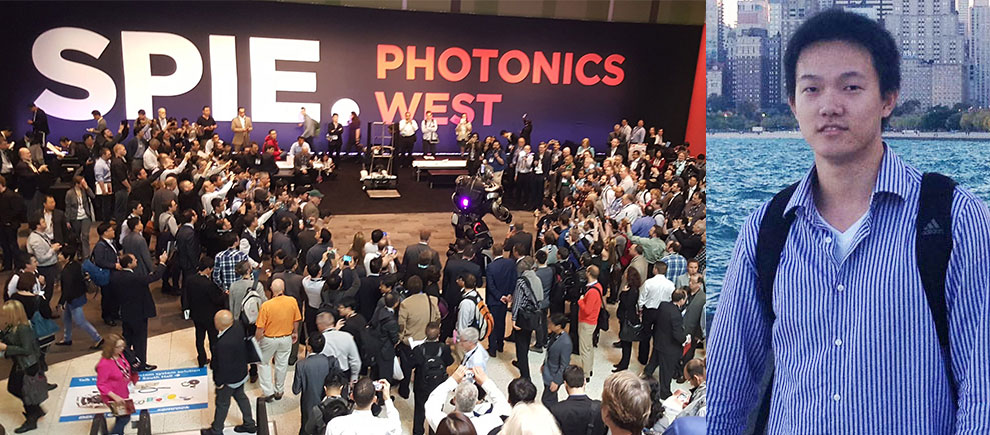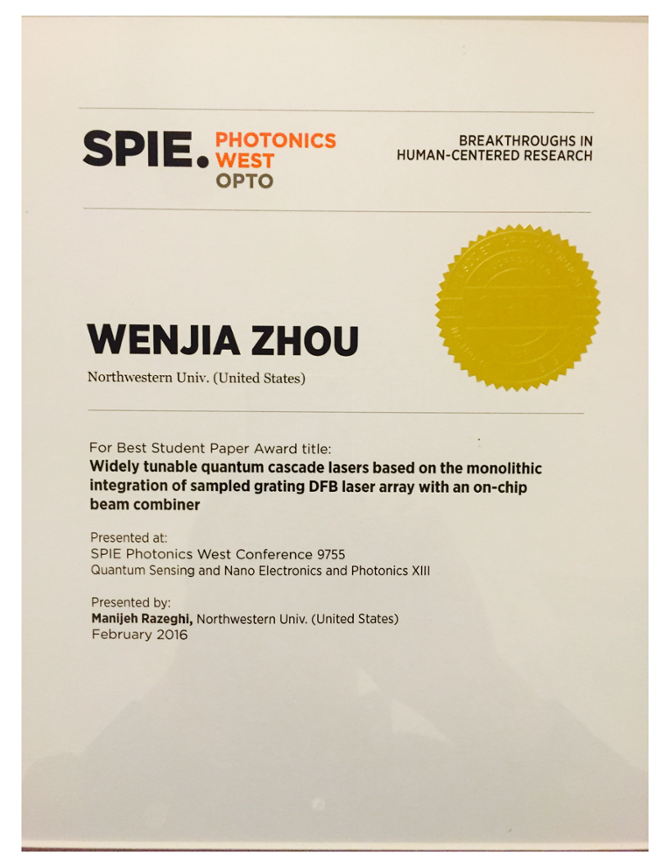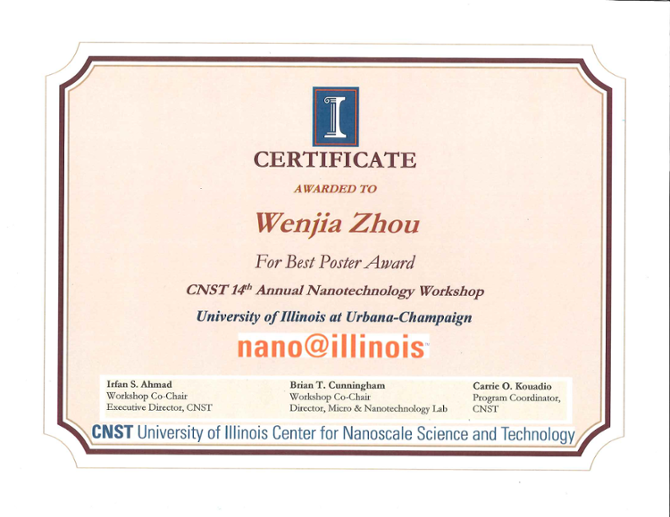Wenjia Zhou Wins Best Paper Award at SPIE Photonics West 2016 Conference & Best Poster Award at CNST Nanotechnology Workshop
His research interests, include Quantum Cascade Lasers.

EECS Ph.D. Student Wenjia Zhou has been awarded the Best Paper Award for his research, titled,"Widely tunable quantum cascade lasers based on the monolithic integration of sampled grating DFB laser array with an on-chip beam combiner" at the SPIE Photonics West 2016 Conference. The event, which focused on the premier technical event and marketplace for thephotonics, biophotonics, and laser industry, was held in San Francisco, CA, on February 13-18, 2016.
Additionally, Zhou also received the Best Poster Award for his research, titled, "Monolithic, Widely Tunable Quantum Cascade Laser Source" at The 14th Annual CNST Nanotechnology Workshop. The was held in Urbana, IL, on May 5-6, 2016.
Zhou is a Ph.D. Student in the Center for Quantum Devices (CQD) at Northwestern and is advised by Prof. Manijeh Razeghi. His research interests, include Quantum Cascade Lasers. Zhou received his B.S. at University of Science and Technology of China in 2013.

Paper Abstract: Quantum cascade lasers (QCLs) have become important laser sources for accessing the mid-infrared (mid-IR) spectral range, achieving watt-level continuous wave operation in a compact package at room temperature. However, up to now, wavelength tuning, which is desirable for most applications, has relied on external cavity feedback or exhibited a limited monolithic tuning range. Here we demonstrate a widely tunable QCL source over the 6.2 to 9.1 μm wavelength range with a single emitting aperture by integrating an eight-laser sampled grating distributed feedback laser array with an on-chip beam combiner. The laser gain medium is based on a five-core heterogeneous QCL wafer. A compact tunable laser system was built to drive the individual lasers within the array and produce any desired wavelength within the available spectral range. A rapid, broadband spectral measurement (520 cm−1) of methane using the tunable laser source shows excellent agreement to a measurement made using a standard low-speed infrared spectrometer. This monolithic, widely tunable laser technology is compact, with no moving parts, and will open new opportunities for MIR spectroscopy and chemical sensing.
The biennial International Semiconductor Device Research Symposium focuses on exploratory research in electronic and photonic materials and devices. Areas such as novel device concepts, processing technologies, advanced modeling, nanotechnology, nanoelectronics, wide band-gap semiconductors, MEMS materials and devices, oxides and dielectrics, organic and polymer opto-electronic materials and devices, ultra high frequency devices & RF effects, flexible and printed electronics, and high power-high temperature devices are included. The Symposium brings together diverse participants in multidisciplinary areas, and provides a forum for extended personal scientific interaction for engineers, scientists, and students working in the field of advanced electronic materials and device technologies.
The CNST Nanotechnology Workshop highlights University of Illinois research in bionanotechnology and nanomedicine, nanoelectronics and nanophotonics, and nanomaterials and nanomanufacturing, leading to cross-campus and industry collaborations.

